Let’s be real, lounging on the beach and diving into the ocean is fun, but after a week or two, the excitement can fade. So, why not do something different this summer? Imagine combining adventure with purpose by joining a summer volunteer program. It’s a chance to make a difference, and the experiences you gain will be way more fulfilling than just working on your tan. So, why not do something different this summer break? Imagine combining adventure with purpose by joining a summer volunteer program.
Here’s why a summer of volunteering is a game-changer:
- Help communities by addressing critical needs.
- Create a lasting impact in just a short amount of time.
- Learn new skills that will boost your personal and professional growth.
- Explore places with a whole new perspective – both globally and locally.
- Make new friends and share unforgettable experiences.
- Get career insights and a deeper sense of who you are along the way.
Whether you are into helping your local community, making an impact abroad or are interested in virtual volunteer opportunities, we’ve got the ultimate guide to making this summer count!
In this guide, we’ll look at:
What Is Volunteering?
Volunteering is an altruistic activity aimed at helping others (whether individuals, groups, organizations, causes or the community as a whole) without expecting any material reward in return, according to Musick and Wilson (2008). Volunteering comes in two main forms: it can be either formal or informal.
- Formal Volunteering: Unpaid help through organized groups, clubs or organizations.
- Informal Volunteering: The offering of help directly to individuals outside your family, such as picking up groceries for an elderly neighbor.
Related: The Best Types of Volunteer Programs
What is a (summer) volunteer program?
A volunteer program is an organized initiative where individuals offer their time and skills to support a cause or organization without financial compensation. A summer volunteer program specifically offers a short-term initiative during the summer months, where individuals engage in volunteer work, often with a focus on community service, environmental projects or international development.
Volunteering programs are a form of formal volunteering.
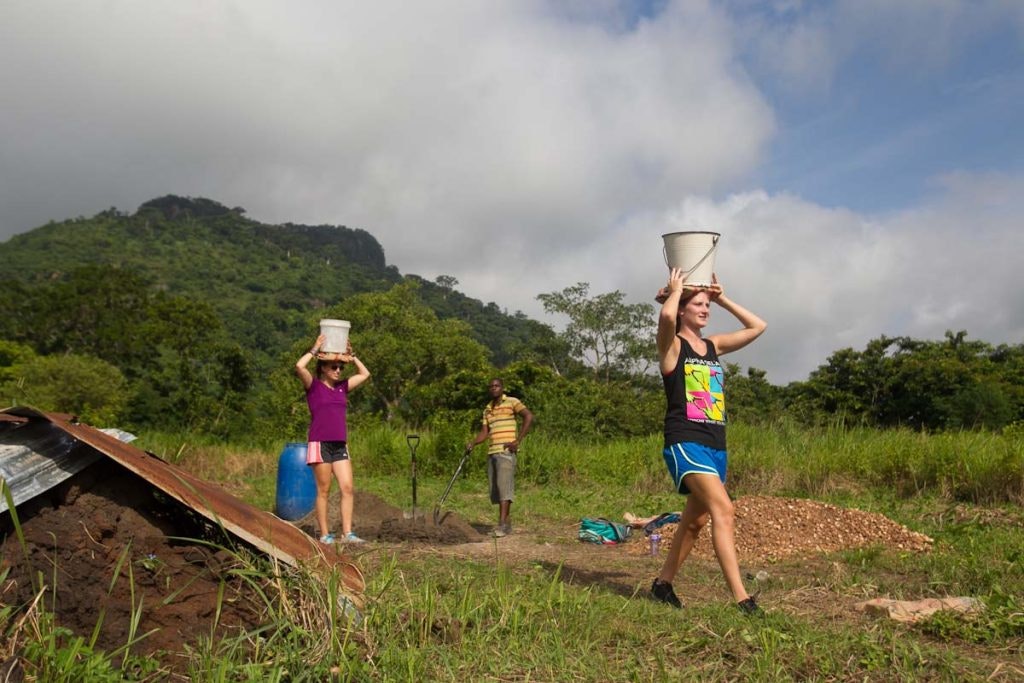
Students carry buckets during a summer volunteer program..
Who are volunteer programs for?
Volunteer programs are for everyone, from students and employees to passionate volunteers who want to dedicate their time and energy to meaningful causes. Some volunteer programs are tailored to specific age groups to ensure that each person can contribute in ways that suit their stage of life, such as:
- Student volunteer programs are perfect for those looking to gain hands-on experience, build their resumes and make a difference while on break from school or college.
- Employee volunteer programs are often organized initiatives within a company that encourages employees to participate in volunteering activities during work hours or outside of work.
Wondering…
…which generation volunteers the most? Generation X, the generation defined as people born from 1965 to 1980, has the highest rate of volunteering in the US. (Source: AmeriCorps)
…which country volunteers the most? The USA has the highest number of volunteers, as of 2023, with 41.9% mostly participating in different conservation projects against climate change. The second volunteer position in the list was secured by New Zealand. (Source: EnterpriseAppsToday)
…what gender volunteers the most? In the USA, most volunteers in 2022 were female with about 44.6 million female volunteers and 32.7 million male volunteers. (Source: AmeriCorps)
…which regions have the most volunteers? Africa and Asia Pacific have the highest monthly rates of volunteers, as of 2022. (Source: EnterpriseAppsToday)
…where volunteers are needed the most? Volunteers are needed most in those areas that face times of crisis and uncertainty, when communities face challenges such as natural disasters, economic hardships, or public health emergencies, affecting both global and local levels.
What Types of Volunteering Opportunities Exist?
Types of volunteer services and volunteering opportunities include environmental volunteering, animal volunteering, community volunteering, sports & leisure volunteering, virtual volunteering, healthcare volunteering and international volunteering. Here are types of volunteering opportunities you might want to consider:
| Type of Volunteering | Description | Examples |
|---|---|---|
| Environmental Volunteering | Efforts to protect and restore the environment. | National parks, wildlife rehabilitation, conservation projects. |
| Animal Volunteering | Volunteering focused on the care and support of animals. | Animal shelters, wildlife rescue, veterinary clinics. |
| Community Volunteering | Initiatives to support community needs. | Local nonprofits, soup kitchens, community cleanup. |
| Sports & Leisure Volunteering | Opportunities related to sports and recreational activities. | Coaching youth sports teams, organizing community events, assisting at sports events. |
| Virtual Volunteering | Remote volunteering activities facilitated online. | Online tutoring, digital advocacy, remote administrative support. |
| Healthcare Volunteering | Volunteering in healthcare settings or health-related initiatives. | Hospitals, public health campaigns, medical research. |
| International Volunteering | Volunteer work with a global or international impact. | Humanitarian aid, development projects, cultural exchange. |
Continue reading: Best Types of Summer Programs Abroad for High School Students
What are the most popular types of summer volunteering?
The most popular types of summer volunteering are those that offer short-term but intensive experiences, focusing on immersive and impactful activities within a brief period, such as:
Service Learning trip: Combine travel with community service experiences on a service learning trip with Rustic Pathways. Click here to learn more about the best service learning projects abroad.
Summer Camps: Get involved with youth programs such as sports, leadership and language camps, often guided by experienced team leaders who support and mentor participants. If you’re interested in teaching English, a TEFL certification may be needed.
Beach Clean-ups: Join efforts to clean and protect coastal areas. Walk along the beach and pick up trash brought to the beach by the tide. This way you can protect the turtles when they are laying eggs.
Organic Farming: Engage in hands-on activities like soil preparation, planting, harvesting and maintaining crops using eco-friendly methods.
Shelter Work: Assist with daily animal care tasks such as feeding, grooming and providing companionship to pets in need. Additionally, support adoption events by preparing animals, interacting with potential adopters and ensuring a smooth process for finding loving homes.
Create your own Project: Design your own volunteering initiative, such as offering tutoring, hosting food and clothing drives or use your tech skills to support local organizations.
Why Should I Volunteer?
You should volunteer because it allows you to create positive change in the lives of others and contribute to a better world, all while growing personally by gaining new experiences, skills and connections.
What are the Benefits of volunteering?
5 Benefits of Volunteering for the World:
- Strengthens community bonds
- Enhances quality of life
- Supports organizations and individuals
- Raises awareness and drives change
- Promotes diversity, equity and inclusion
5 Benefits of Volunteering for You:
- Enhance your social connections
- Improve your mental and physical health
- Find career advancement opportunities
- Experience increased sense of purpose
- Strengthens your personal fulfillment and growth
Explore these 5 benefits of volunteering in detail.
“During my short trip to Costa Rica, I learned many skills that I know I will continue to use throughout the rest of my life. I gained self-confidence from trying new and unfamiliar activities and learned how to forge relationships with new people.”
Caroline Bae – Surf and Service in Costa Rica 2021

Meet people and grow together on volunteer programs.
Does volunteering look good on a resume?
Yes, volunteering activities look good on a resume. Listing volunteer work on your resume demonstrates your commitment to the community and reflects a strong sense of social responsibility. It also highlights key qualities that employers value, such as teamwork, adaptability and reliability.
Learn How to List Valuable Volunteer Experience on Your Resume.
Local Summer Volunteer Programs
Discover the best summer volunteer programs in your area. Here some of the best local options for a summer filled with meaningful impact.
- Climate Leaders Fellowship: The Climate Leaders Fellowship connects high school students globally to work on climate impact projects in their communities.
- AmeriCorps NCCC’s Summer of Service: AmeriCorps NCCC’s Summer of Service is a short-term program with the missions of strengthening communities and developing leaders through service.
- CVS Volunteer Program: A CVS volunteer assists with various tasks at CVS Health location or community outreach programs. Their roles can include helping with administrative duties, supporting patient services, or participating in health-related community events.
Interested in long-term volunteering? Become a UN Volunteer!
International Volunteering Programs
Explore the world while making meaningful impacts through international volunteering programs in exciting destinations. Costa Rica, Thailand and Iceland are top destinations for summer volunteer programs abroad. When choosing where to go, safety, cultural immersion and impact are key factors. To ensure both students and local communities benefit, check out our tips for responsible and impactful volunteer travel experiences.
Where is the best place to volunteer abroad?
The best place to volunteer abroad is Costa Rica, particularly famous for its numerous sea turtle conservation projects. Based on Rustic Pathways’s extensive experience since 1983, we present 5 of the best summer volunteer programs and destinations:
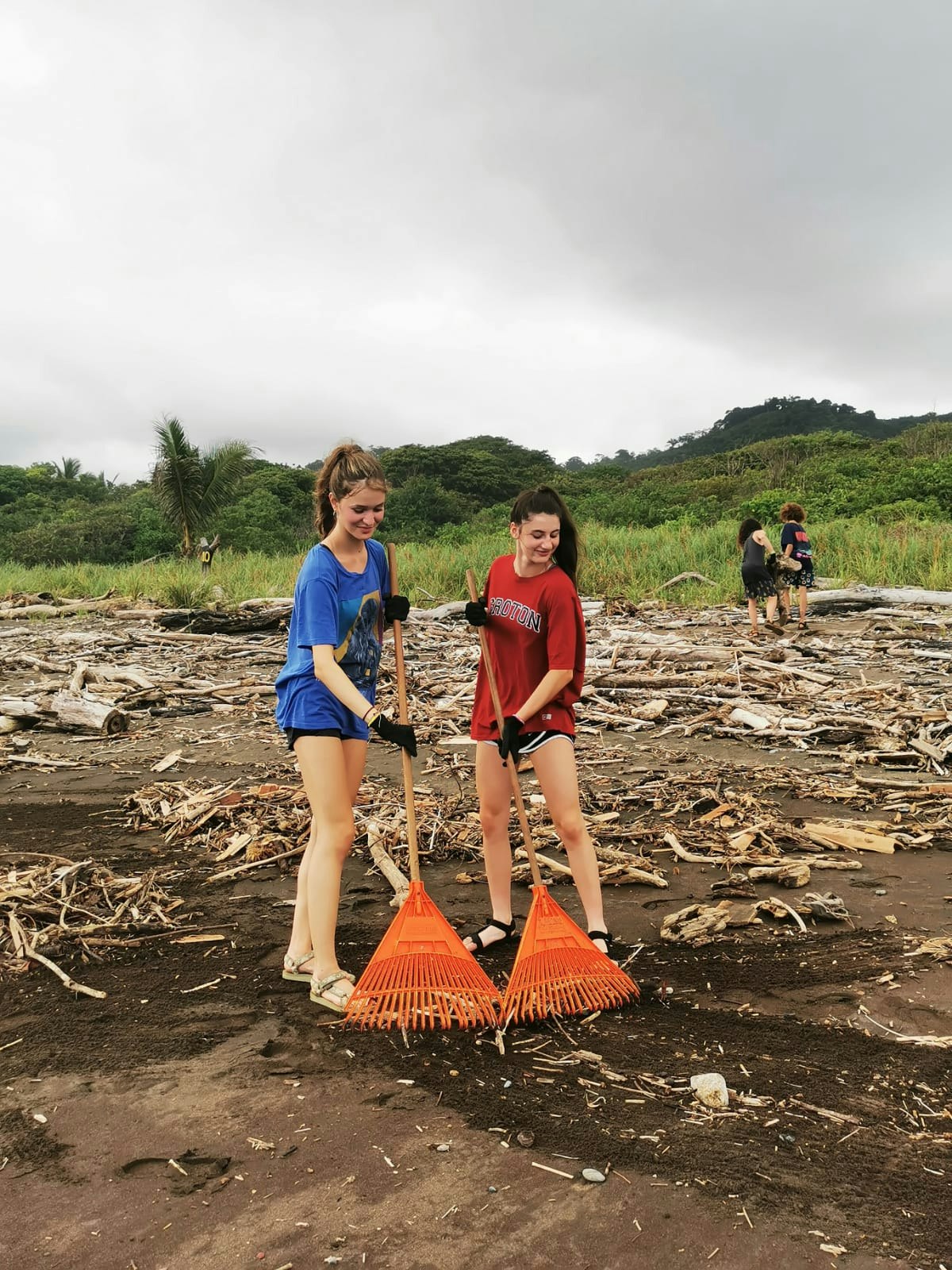
#1 Costa Rica
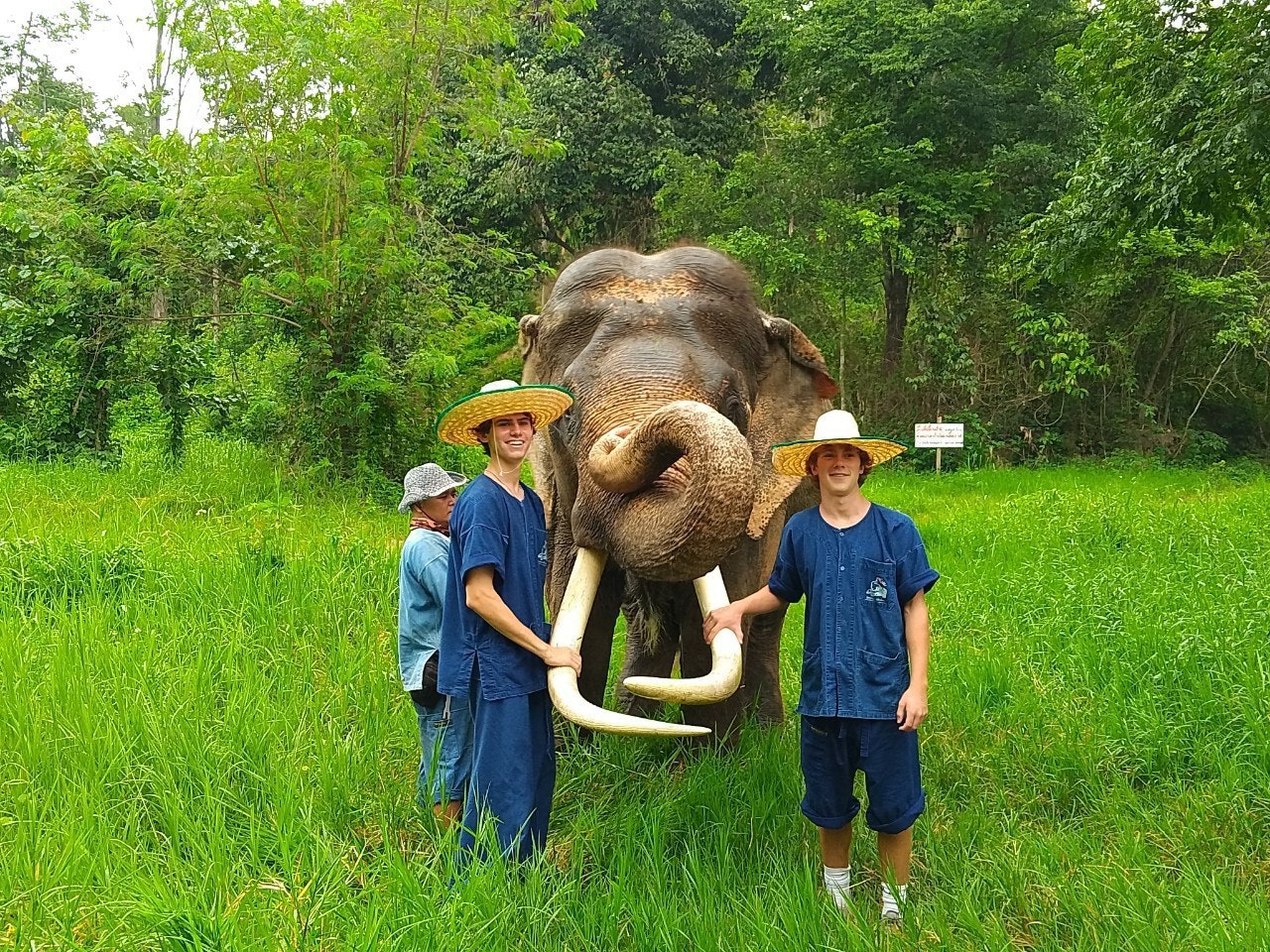
#2 Thailand
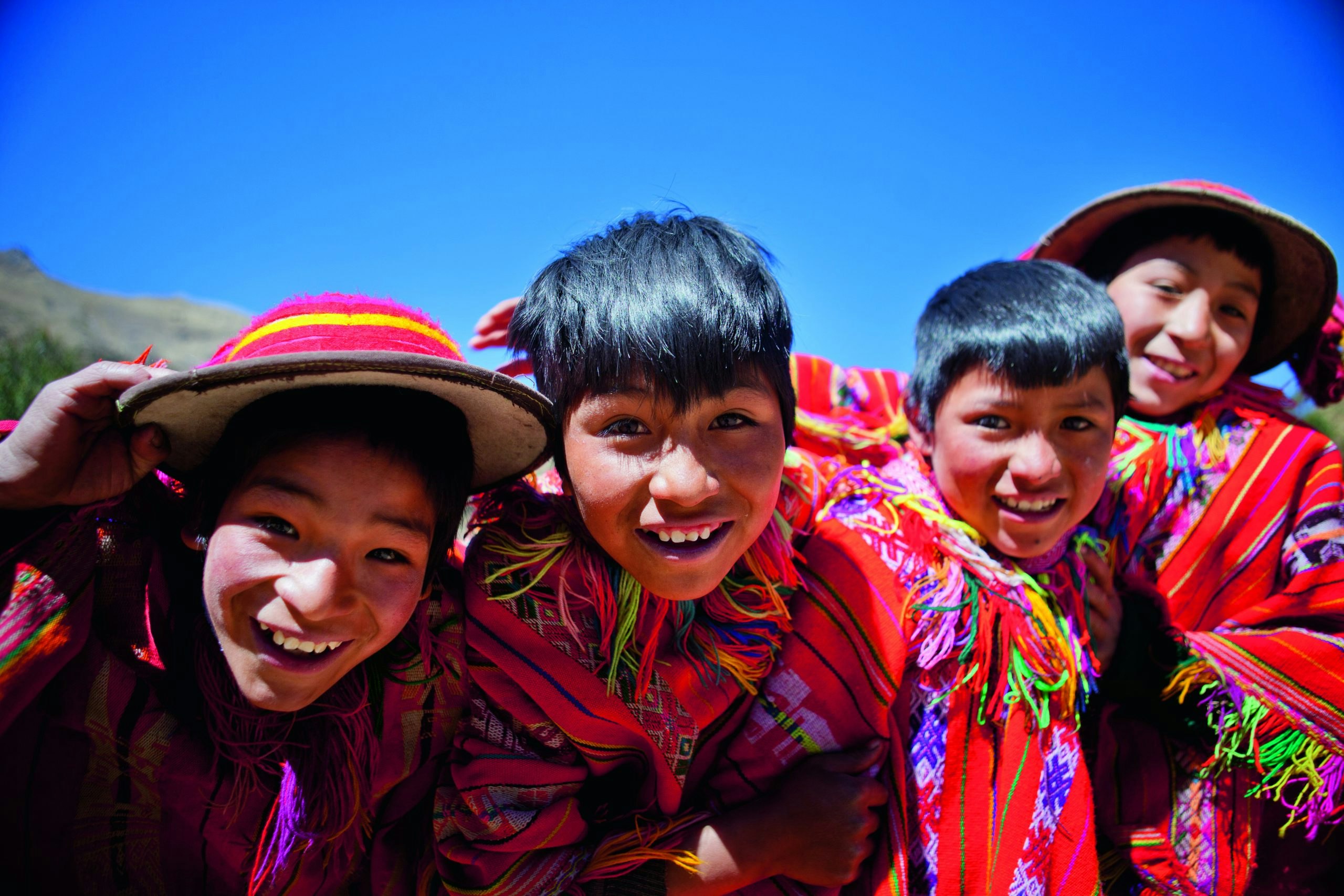
#3 Peru
Recommended Programs:

#4 Tanzania
Recommended Programs:
- Rustic Pathways Culture and the Crater
- Rustic Pathways African Wildlife and Environmental Conservation
- International Volunteer HQ Women’s Education
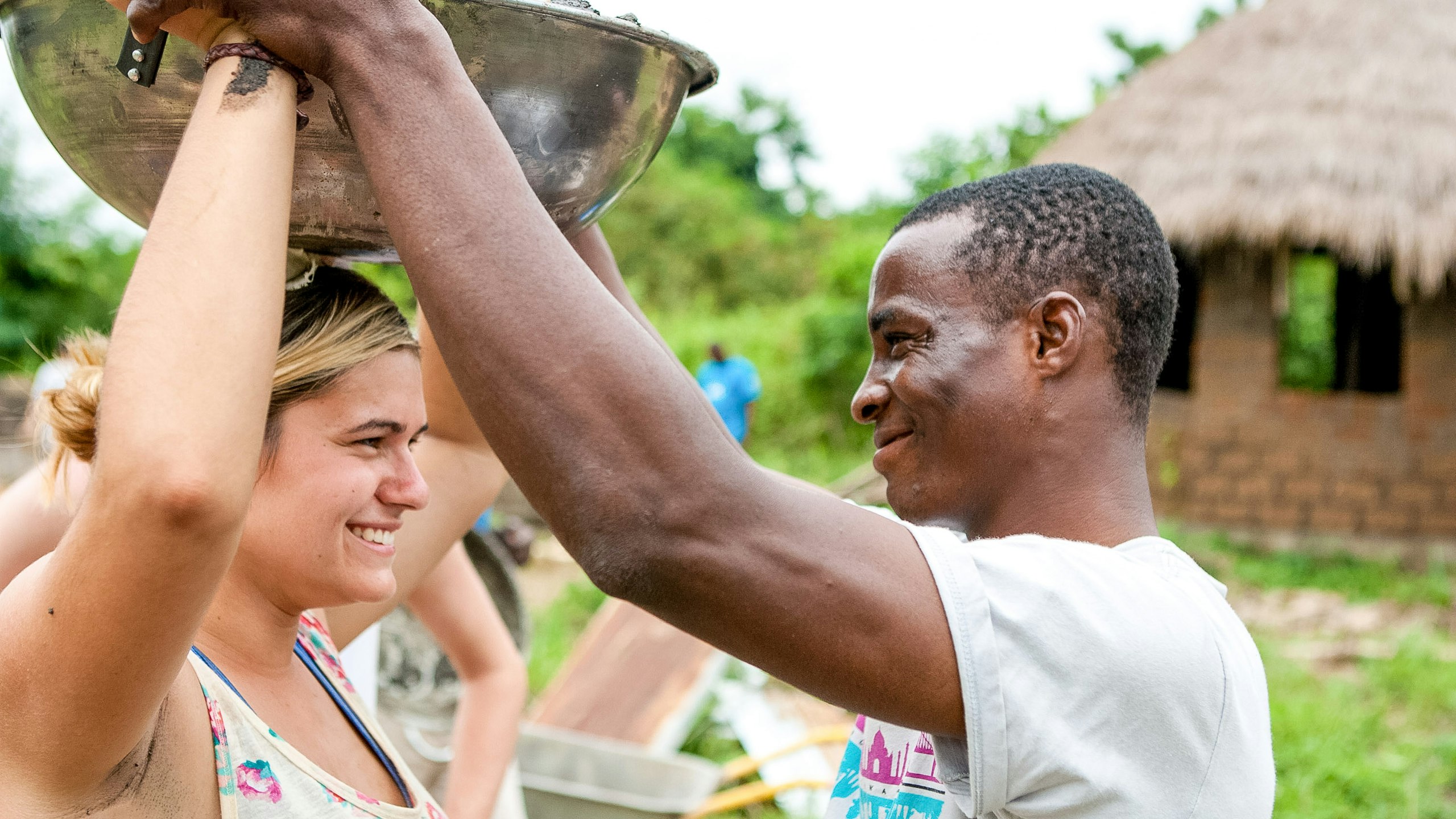
#5 Ghana
Recommended Programs:
- Rustic Pathways Great Ghana Adventure
- Go Volunteer Africa Ghana Community Volunteer Program
- International Volunteer HQ Agriculture Volunteer Program
“This trip truly was one of the best experiences I’ve ever had the chance to be a part of and I couldn’t have asked for a better nine days in Costa Rica. I was immersed in the amazing culture, ate a lot of delicious food, met some of the best people that I later got closer to over the span of the trip, and felt the major reward of giving back to the community.”
Quote by Kanika Patel – Pura Vida Service in Costa Rica 2021
Where is the safest place to volunteer?
The safest place to volunteer abroad is Iceland, based on its top position in the latest Global Peace Ranking of 2024. Based on this ranking, we have listed five of the safest countries to volunteer:

#1 Iceland
Recommended Programs:
- Volunteer World Island Nature Conservation & Sustainability
- Seeds Volunteering for Iceland

#2 New Zealand
Recommended Programs:
- Pupu Rangi Nature Sanctuary Conservation Volunteer
- International Volunteer HQ Volunteer in New Zealand

#3 Singapore
Recommended Programs:
- Superhero Me
- Habitat for Humanity Singapore

#4 Portugal
Recommended Programs:
- Rustic Pathways Lisbon to Porto & Surf Culture
- GoEco Marine Conservation in Lisbon

#5 Canada
Recommended Programs:
- Fronteering Husky Ranch
- Fronteering Horse Ranchstay
Not found what you were looking for? At Rustic Pathways, we create meaningful service work opportunities anywhere around the world. Have a look at our current destinations or contact us to make your dream trip a reality:
- Where can I volunteer in Latin America?
- Where can I volunteer in Africa?
- Where can I volunteer in Europe?
- Where can I volunteer in Asia?
- Where can I volunteer in the South Pacific?
- Where can I volunteer in the United States?
How do I prepare for a volunteer role abroad?
Preparation is key to a successful volunteer experience abroad. Here are some essential tips to consider before you leave:
- Review Program Materials: Go through any training materials or orientation sessions provided by the program to familiarize yourself with expectations and procedures.
- Travel Arrangements: If your volunteer role involves travel, ensure you have all necessary documents and arrangements in order:
- Budgeting: Create a budget and understand the financial structure of your volunteer program to manage your expenses effectively.
- Cultural Awareness: Take time to learn about the culture, customs, traditions, and language of your destination to better integrate and connect with the local community.
- Packing: Pack appropriate clothing and essentials based on the climate and your volunteer role. Include items that will help you feel comfortable and well-prepared.
What is the average cost for volunteering abroad?
The average cost to volunteer abroad ranges from $500 to $900 per week, depending on factors like program fees, the type of work, location and duration.
These fees, often referred to as tuition or program costs, generally cover essentials such as accommodation, meals, staff support, activities and transportation, ensuring a well-rounded and supported experience while you volunteer.
Additional costs to keep in mind may include the return airfare, visa and passport fees, travel insurance and personal expenses.
Learn how to fundraise for a service trip abroad
Why do volunteer programs cost money?
Volunteer programs often cost money because they are used to cover various necessary expenses. These might include training for volunteers, accommodation, meals and logistical support.
At Rustic Pathways, the costs associated with the programs cover world-class travel experiences and ensure high standards of quality and safety for both volunteers and the communities we serve.
Tip: Reach out to the program providers to understand the costs of your summer volunteer program in more detail. Talk with our expert travel advisor to explore more.
“The entire experience with Rustic Pathways has been exceptional from start to finish—from information about trips we were considering, selecting and paying for a trip, making travel arrangements, the organization at the departure airport, and the adventure itself to the correspondence I received as my daughter arrived and enjoyed her time abroad. After each of her Rustic Pathways trips my daughter has participated in, she is more open-minded and eager to experience circumstances outside of her comfort zone.”
Julianne Frost, Peyton’s mom – Turtle Conservation Project: Thai Elephant Conservation Project
How can I reduce the cost of volunteering abroad?
To reduce the cost of volunteering abroad, consider these strategies:
- Seek Scholarships and Grants: Many organizations provide financial support; look for funding opportunities for volunteers.
- Develop a Fundraising Action: Organize events or activities such as bake sales, car washes, or community events to raise money or launch a crowdfunding campaign to gather contributions from friends and family.
- Cut Costs: Consider local volunteer activities and look for budget-friendly travel options and discounted flights to reduce overall expenses.
Can I volunteer for free?
Yes, you can volunteer for free! Many free options exist through local community groups and nonprofits. Volunteering abroad for free is also possible; in those cases, you might not pay any program fees, but still need to cover your travel and living expenses.
Here are some free volunteer opportunities to consider:
- Nonprofit organizations: Many local and international nonprofits offer free volunteer opportunities in areas like education, healthcare and community development.
- Work exchanges: WWOOF and HelpX are popular and trusted work exchange platforms that provide accommodations and food in exchange for work.
- Mission trips: Typically faith-based, these programs are run by religious organizations and involve volunteer work related to their missions.
Find out everything you need to know about volunteering abroad.

Summer Volunteer Programs offer you unforgettable memories.
How Do I Become a Volunteer?
Ready to start your volunteer adventure? Let’s explore how you can turn your summer volunteer idea into reality.
How do I choose the right volunteer opportunity?
Choose the right volunteer opportunity by aligning it with your goals, skills, interests, and values. Additionally, consider the program’s duration, available budgeting and funding options, as well as the visa and travel requirements.
Start by asking yourself the following questions:
- What kind of volunteering do you prefer?
- How many service hours are you aiming to complete?
- What are your primary goals for volunteering?
- Are there specific locations or regions you are interested in volunteering in?
- What kind of support and resources does the program offer?
- How do you prefer to manage your costs? Are you looking for programs that offer scholarships or financial aid?
- What is your flexibility regarding the start date and duration of the program?
- Are there any specific health or safety considerations you need to address?
Tip: Connect with past volunteers to get insights and clear up any questions you might have. Plus, chatting with the project hosts can give you extra details and help you make an informed decision!
How do I find (international) volunteering opportunities?
Explore volunteer programs by looking through different channels and platforms. Here are some strategies to help you discover rewarding volunteer programs:
- Explore online platforms: Start with online platforms like VolunteerMatch, the European Youth Portal and volunteer.gov. Those platforms offer extensive listings of local and international volunteer opportunities and let you filter by skills, interests and location to find your perfect fit.
- Explore local resources: Check out community centers, nonprofits and universities for volunteer programs that might not be advertised online. These local resources can offer unique opportunities.
- Explore social media: Use social media platforms like LinkedIn, Facebook and Instagram to discover volunteer opportunities. Follow organizations you admire, engage with their content and network with other volunteers to find new opportunities.
- Get a head start: Volunteer spots can be competitive, so start your search early. Planning ahead increases your chances of securing a position and gives you more time to prepare for your experience.
How do I apply for a volunteer program?
Once you identify a program that interests you, review the application requirements carefully. The process can change from program to program but typically involves submitting an application form, which may include personal statements or essays. Some programs may also require interviews.
Master interviews easily with our tips and tricks!
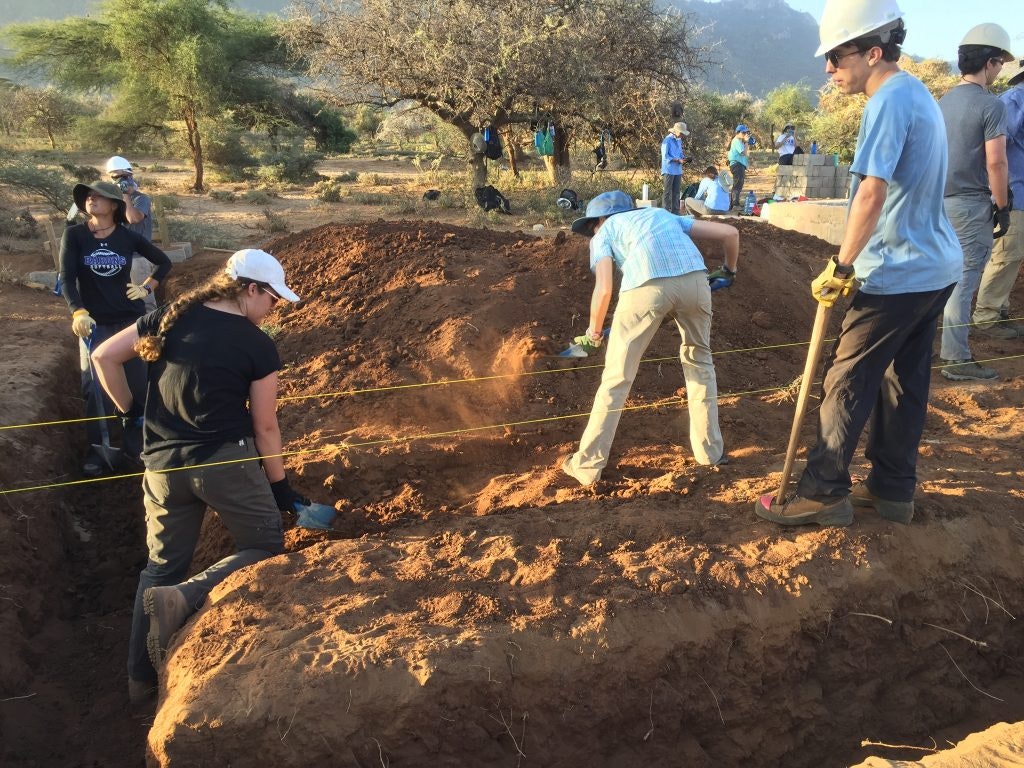
Learn new skills while volunteering!
Is Volunteering Even Ethical?
Volunteering is ethical when it is approached with respect, fairness and a genuine commitment to addressing the community’s needs rather than exploiting them.
Particularly in international settings, it is crucial to recognize that volunteers are not “saviors” but partners working alongside local communities. The goals should be to support, not undermine local expertise and economies. Ethical volunteering requires a collaborative mindset, ensuring that your efforts are in harmony with the community’s existing strengths and goals.
When doing volunteer work, it is essential to consider the ethical implications to ensure that your effort genuinely benefits those you aim to support. Let’s understand how we can do that!
Related: Rustic Pathways Policies on Sustainable Travel
Is volunteering selfish or selfless?
Volunteering can be seen selfish or selfless, depending on your perspective. On one hand, volunteers engage in work that benefits others, such as assisting your community, protecting the environment or supporting charitable initiatives.
On the other hand, volunteers get personal benefits from their work. These includes a sense of satisfaction, the acquisition of new skills and experiences that enrich their personal and professional lives. Volunteering can enhance your resume, expand professional networks and provide a sense of personal fulfillment. Thus, while the intention is to serve, volunteers often gain as much as they give.

What is the downside of volunteer tourism?
The downside of volunteer tourism is the potential for perpetuating dependency on foreign aid, cultural insensitivity and lack of long-term effectiveness in addressing local issues. Volunteer tourism, or “voluntourism”, can lead to the displacement of local workers and create superficial engagements that fail to address deeper systemic problems. Another downside is the potential displacement of local workers, where volunteers take on roles that could have provided employment opportunities for locals.
Learn More: Summer Volunteer Programs Abroad

